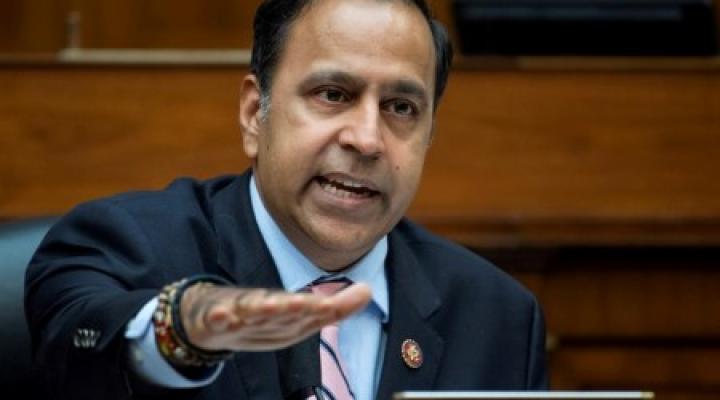
A U.S. congressional committee issued an extensive list of bipartisan recommendations on Tuesday to reset America's economic ties with China, setting out legislative goals for 2024 that it said would prevent the U.S. from becoming the "economic vassal" of its chief geopolitical rival. The proposals drew on a year of hearings and investigations by the House of Representatives' select committee on China, and range from what would be dramatic shifts in U.S. regulatory approaches, including adding restrictions on outbound investment to China, to more technical legal revisions, such as reducing a threshold for duty-free shipments from China into the U.S. Advertisement · Scroll to continue Implementing the measures would "require hard trade-offs and will not be without cost," the committee, led by Republican chair Mike Gallagher and Democratic ranking member Raja Krishnamoorthi, said in a report. "The United States now has a choice: accept Beijing's vision of America as its economic vassal or stand up for our security, values, and prosperity," the committee said. Gallagher and Krishnamoorthi told reporters on a call that the November meeting between President Joe Biden and Chinese leader Xi Jinping in San Francisco, intended to smooth rocky relations, did little to change their 150 recommendations. Advertisement · Scroll to continue Among them: forcing a ban or Chinese divestment of social media platform TikTok, directing the Commerce Department to impose import duties on legacy Chinese semiconductors, requiring the Federal Reserve to stress-test U.S. banks' ability to withstand a potential loss of market access to China, and restricting U.S. federal agencies from buying Chinese-made drones. "I think this is really a blueprint for some bipartisan legislation that we're hoping to move in the next year," Krishnamoorthi said. Advertisement · Scroll to continue The committee was set up earlier this year in an effort to convince Americans why they should care about competing with China, and has promoted the selective decoupling of the U.S. and Chinese economies. Gallagher said Republicans were having a "robust discussion" on how to move forward with legislation restricting U.S. outbound investment to China, a version of which was dropped from an annual defense authorization bill. He added that he was hopeful those discussions would lead to "responsible legislative activity" in the first quarter of 2024. "Even those major asset managers or bankers with whom we've engaged that are skeptical of any restrictions on investment in China, even in military and critical technological areas, I think would welcome the predictability that legislating the issue would provide," Gallagher said.